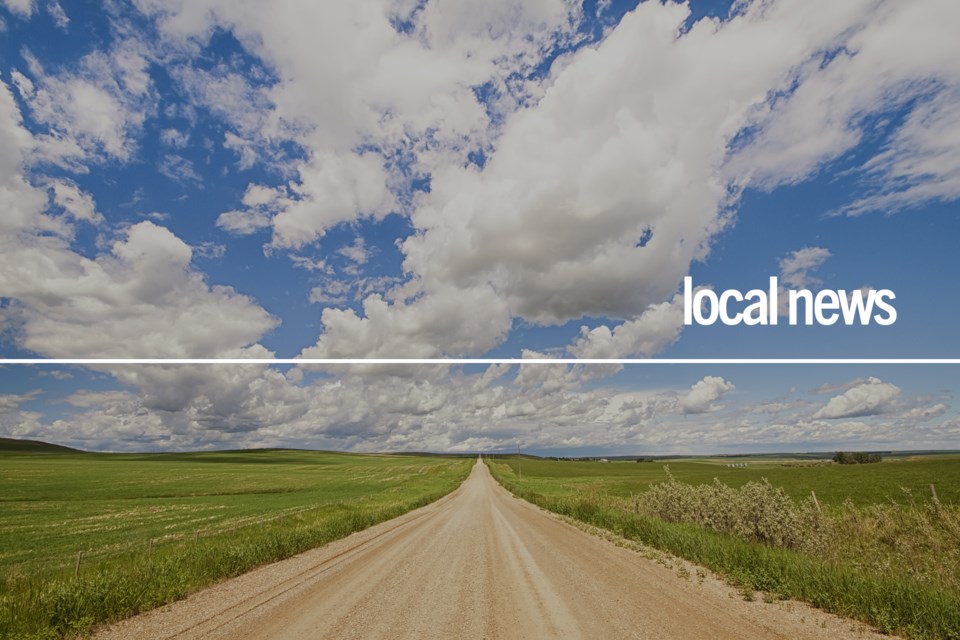LAKELAND - A move by N.E. Muni-Corr Ltd. to phase out livestock grazing within the right of way along the Iron Horse Trail over the next five years raised a few eyebrows around the County of St. Paul council table recently.
Temporary Licence of Occupation (TLO) agreements have been in place with some adjacent property owners providing permission for them to graze livestock within the 90-foot right of way since Muni-Corr acquired it from CN in 2001. At that time, the northeast region was experiencing a significant drought and the partner municipalities of Muni-Corr agreed it would be a “goodwill gesture” to allow for grazing of livestock in the right of way. Through the years, those agreements have continued to be renewed.
In a letter to council, Muni-Corr president Dwayne Yaremkevich explained municipalities at the time were required to install a set of two eight-foot gates and Riverland Recreational Trail Society (RRTS) was required to provide Texas gates, installed by the municipalities, with landowners paying $10 per half mile annually for grazing.
“We are now twenty years later, and N.E. Muni-Corr Ltd. and Riverland Recreational Trail Society need to reconsider the practice,” Yaremkevich stated, outlining a long list of issues relating to trail users vs. livestock, infrastructure damage, costs of maintenance and landowners not necessarily playing by the rules.
“To be honest, that aren’t really that many farmers out there that are even using the right of way,” Coun. Dale Hedrick, the County’s representative on Muni-Corr, said.
Hedrick said the county is continually promoting tourism in the area and the Iron Horse Trail has proven to be a “big draw.” However, livestock on the trail ‘hinders” some people from using it. He also pointed out that cattle were not allowed on the right of way when CN operated the rail line. “They couldn’t use it before when CN had the rails, so what did they do back then?”
“You know what my fear is, we are still in rural Alberta and in rural Alberta there is still ... a right to farm,” Reeve Glen Ockerman said. “These people are coming out to rural Alberta, what do they think happens? They actually come for the beauty, the simplicity of it, the nature or the animals,” he said, adding, “This trail fragmented a lot of our properties... it costs a lot of dollars for these guys to provide water for their livestock, access to grazing, fencing..."
Coun. Darrell Younghans said when the rail line was still in place, the fencing along the corridor was maintained by the railroad, not the adjacent landowner. With the advent of the trail, the responsibility fell on the landowner. He believes Muni-Corr needs to come up with a different plan and sit down with the impacted landowners as the move to stop grazing on the right of way potentially interferes with people’s livelihoods.
“You have just as much chance of encountering a deer or a moose or a bear along the trail as you do a bull or a cow,” he said regarding trail user vs livestock concerns.
Coun. Kevin Wirsta said cattle producers are losing more and more grazing land to riparian areas, crop land and development and this move by Muni-Corr is another example.
Yaremkevich pointed out in his letter that in 2015, RRTS replaced over 70 gates on the trail at a cost of $93,000 with the municipalities doing the installation due to safety issues concerning the steep approach on the old ones. While municipalities take on the maintenance of these gates, RRTS has hired contractors to reposition or trench underneath them in some cases to stop cattle crossing them.
He went on to explain that cattle tend to congregate on the trail – “They lie on the trail, wallow, dig and create holes that are trail hazards. The MD of Bonnyville contacted us last year to inform us they will no longer be repairing cattle damage on the trail. It is happening too often, and they can’t afford the manpower.”
Yaremkevich also expressed safety concerns for trail users with the livestock posing a hazard. Many users are from urban areas and have no experience with livestock and with some landowners grazing cow-calf pairs and bulls along the right of way, it is worrisome. Plus, he noted, the RRTS received calls from livestock owners who claim their stock is being chased and gates are being left open thus putting the livestock at risk of getting out on to roadways. Conflicts between landowners and trail users have occurred.
“We have owners who have welded a chain across a Texas gate, strung wire across the trail nearly decapitating a trail user, installing a water tank and letting it run over and flooding out the trail, installing fencing in the right of way instead of the property line,” Yaremkevich noted as part of a lengthy list of the issues that have arisen over the years.
In some areas, it is clear grazing is no longer taking place as there is either no grass, or trees have grown up.
“The TLO program is not a sustainable program in terms of costs and manpower to the municipalities or to the volunteers of the RRTS,” Yaremkevich indicated.
Recognizing that the move is not going to be well-received by landowners, Muni-Corr is suggesting a five-year phase out program to provide enough time for livestock owners to make other arrangements for their cattle. Notices to landowners were expected to have been sent out last month.
Council agreed more communication with impacted landowners is needed and approved a motion opposing Muni-Corr's letter of intent to phase out the TLO agreements.



